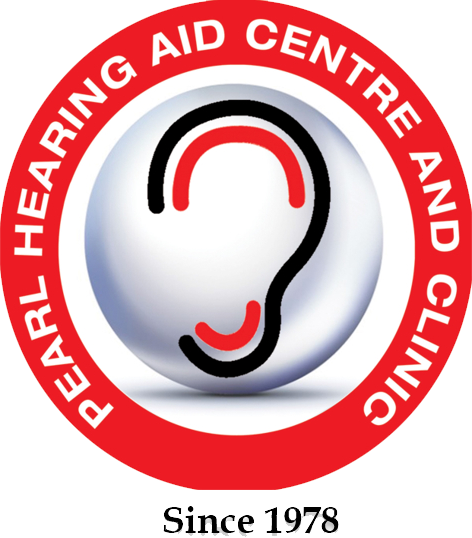Book Appointment Now

What Is Speech Therapy and Who Can Benefit?
Speech is one of the most essential ways we communicate, but for some individuals, speech and language difficulties can make communication challenging. Speech therapy is a professional treatment designed to help people overcome speech disorders, language delays, and communication problems.
At Pearl Hearing Clinic, we offer specialized speech therapy services in Kolkata for children and adults facing speech, voice, and language difficulties. In this blog, we’ll explore what speech therapy is, how it works, and who can benefit from it.
What Is Speech Therapy?
Speech therapy is a specialized treatment that helps individuals:
✔️ Improve speech clarity and pronunciation
✔️ Enhance language skills and communication ability
✔️ Overcome stammering or fluency disorders
✔️ Strengthen oral muscles for better speech production
✔️ Recover speech skills after neurological disorders like stroke
A certified speech-language pathologist (SLP), also known as a speech therapist, assesses a person’s speech abilities and designs a treatment plan tailored to their needs.
Who Can Benefit from Speech Therapy?
Speech therapy is not just for children—it can help individuals of all ages. Let’s look at different groups of people who can benefit from speech therapy.
1. Children with Speech & Language Delays
Many children experience delays in speech development. If your child is struggling with late speech development, difficulty forming sentences, or unclear speech, speech therapy can help.
📌 Signs Your Child May Need Speech Therapy:
🔹 Not speaking by age 2 – 3 years
🔹 Difficulty pronouncing sounds (e.g., saying “wabbit” instead of “rabbit”)
🔹 Limited vocabulary or difficulty forming sentences
🔹 Trouble understanding and following instructions
🔹 Stammering or difficulty expressing thoughts
🎯 How Speech Therapy Helps:
✔️ Fun and interactive speech exercises to improve communication
✔️ Phonetic and articulation therapy for better pronunciation
✔️ Parent training to support language development at home
2. People Who Stammer or Stutter
Stammering (or stuttering) affects speech fluency, making it difficult to speak smoothly. This can impact confidence, social interactions, and career opportunities.
📌 Common Stammering Issues:
🔹 Repeating words or syllables (e.g., “I-I-I want that”)
🔹 Getting stuck on certain sounds
🔹 Feeling anxious or avoiding speaking situations
🎯 How Speech Therapy Helps:
✔️ Fluency-enhancing techniques to reduce stammering
✔️ Breathing and relaxation exercises to ease speech flow
✔️ Confidence-building strategies for social situations
3. Adults with Speech Problems Due to Stroke or Brain Injury
A stroke or neurological condition can affect the ability to speak clearly. Speech therapy helps patients regain their speaking and communication skills.
📌 Common Speech Issues in Stroke Survivors:
🔹 Aphasia – Difficulty understanding or using words
🔹 Dysarthria – Weak speech muscles causing slurred speech
🔹 Swallowing difficulties
🎯 How Speech Therapy Helps:
✔️ Speech and language exercises to rebuild communication skills
✔️ Muscle-strengthening techniques for clearer speech
✔️ Memory and cognitive-linguistic training
4. People with Voice Disorders
If you experience hoarseness, voice fatigue, or vocal strain, you may have a voice disorder. This is common in teachers, singers, public speakers, and professionals who rely on their voice.
📌 Common Voice Problems Treated in Speech Therapy:
🔹 Hoarseness or voice loss
🔹 Vocal cord nodules or polyps
🔹 Difficulty projecting voice clearly
🎯 How Speech Therapy Helps:
✔️ Vocal exercises to improve voice quality
✔️ Techniques to prevent vocal damage
✔️ Breathing and resonance training for better speech clarity
5. Children with Autism or Developmental Disorders
Children with autism spectrum disorder (ASD), Down syndrome, or other developmental delays often struggle with speech and communication. Speech therapy helps them improve social interaction, speech clarity, and language understanding.
📌 Common Challenges in Children with ASD:
🔹 Limited or no speech
🔹 Difficulty maintaining conversations
🔹 Trouble understanding social cues
🎯 How Speech Therapy Helps:
✔️ Alternative communication methods (sign language, picture boards)
✔️ Interactive speech training to improve verbal skills
✔️ Social skills development for better interaction
6. People with Swallowing Disorders (Dysphagia)
Swallowing difficulties, known as dysphagia, can result from neurological conditions, aging, or injuries. Speech therapy helps improve swallowing functions and prevent choking risks.
📌 Who Needs Swallowing Therapy?
🔹 Stroke survivors
🔹 Parkinson’s and dementia patients
🔹 Individuals with throat injuries
🎯 How Speech Therapy Helps:
✔️ Swallowing exercises to strengthen throat muscles
✔️ Techniques to prevent choking and aspiration
✔️ Diet modifications for safe swallowing
Speech Therapy Techniques Used at Pearl Hearing Clinic
At Pearl Hearing Clinic, we use advanced speech therapy techniques to help individuals speak confidently and clearly.
✅ Articulation Therapy – Helps improve pronunciation
✅ Fluency Training – Reduces stammering/stuttering
✅ Voice Therapy – Improves vocal quality and clarity
✅ Language Therapy – Enhances understanding and expression
✅ Breathing & Resonance Training – Supports clear and relaxed speech
Why Choose Pearl Hearing Clinic for Speech Therapy in Kolkata?
💙 Certified and Experienced Speech Therapists
💙 Customized Therapy Plans for All Ages
💙 Advanced Speech Therapy Techniques
💙 Friendly and Comfortable Clinic Environment
💙 Affordable Pricing & Flexible Appointments
🌟 Helping Children & Adults Communicate with Confidence!
Can speech therapy help adults?
Yes! Speech therapy is highly effective for stammering, voice disorders, stroke recovery, and neurological conditions.
How long does speech therapy take?
The duration depends on the severity of the speech problem. Most people see improvement within 6-12 weeks of regular sessions.
Is speech therapy painful?
No, speech therapy is completely safe and non-invasive.
How can I book a speech therapy session?
Call 📞 +919836822332 or visit pearlhearingclinic.com to schedule an appointment.



